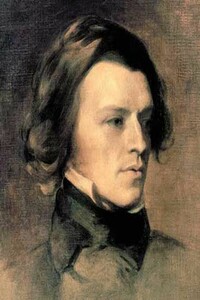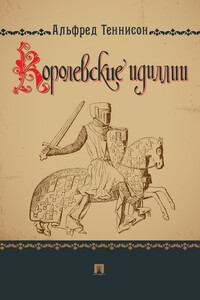Волшебница Шалотт и другие стихотворения - [32]

Английский автор, яркий представитель Викторианской эпохи в поэзии. Работы Теннисона были меланхоличны и отражали моральные и интеллектуальные ценности своего времени, что делало их особенно уязвимыми для более поздней критики.Лорд Альфред Теннисон родился в Сомерсби, Линкольншир. Альфред начал писать стихи в раннем возрасте, подражаю Лорду Байрону. Теннисон учился в колледже Тринити, в Кэмбридже, где и присоединился к литературному клубу "Апостолы" ("The Apostles") и встретил Артура Хэллэма (Arthur Hallam), который стал его ближайшим другом.Его первые книги получали неодобрительные отзывы и, после выхода в 1833 году сборника "Поэмы" ("Poems"), Теннисон не публиковал свои работы около 10 лет.

«Королевские идиллии» – одно из самых известных произведений Альфреда Теннисона, прославленного английского поэта викторианской эпохи. Книга представляет собой сборник баллад о приключениях короля Артура и рыцарей Круглого стола – героев всемирно известного средневекового рыцарского эпоса. Долгое время «Королевские идиллии» были недоступны для отечественного читателя, поскольку до последнего времени не существовало ни одного официально опубликованного перевода на русский язык. В 80-х годах прошлого века за этот титанический труд взялся замечательный поэт и писатель Виктор Лунин, посвятив этой работе почти 10 лет.

В книге рассказывается история главного героя, который сталкивается с различными проблемами и препятствиями на протяжении всего своего путешествия. По пути он встречает множество второстепенных персонажей, которые играют важные роли в истории. Благодаря опыту главного героя книга исследует такие темы, как любовь, потеря, надежда и стойкость. По мере того, как главный герой преодолевает свои трудности, он усваивает ценные уроки жизни и растет как личность.

В книге рассказывается история главного героя, который сталкивается с различными проблемами и препятствиями на протяжении всего своего путешествия. По пути он встречает множество второстепенных персонажей, которые играют важные роли в истории. Благодаря опыту главного героя книга исследует такие темы, как любовь, потеря, надежда и стойкость. По мере того, как главный герой преодолевает свои трудности, он усваивает ценные уроки жизни и растет как личность.

В книге рассказывается история главного героя, который сталкивается с различными проблемами и препятствиями на протяжении всего своего путешествия. По пути он встречает множество второстепенных персонажей, которые играют важные роли в истории. Благодаря опыту главного героя книга исследует такие темы, как любовь, потеря, надежда и стойкость. По мере того, как главный герой преодолевает свои трудности, он усваивает ценные уроки жизни и растет как личность.

В книге рассказывается история главного героя, который сталкивается с различными проблемами и препятствиями на протяжении всего своего путешествия. По пути он встречает множество второстепенных персонажей, которые играют важные роли в истории. Благодаря опыту главного героя книга исследует такие темы, как любовь, потеря, надежда и стойкость. По мере того, как главный герой преодолевает свои трудности, он усваивает ценные уроки жизни и растет как личность.